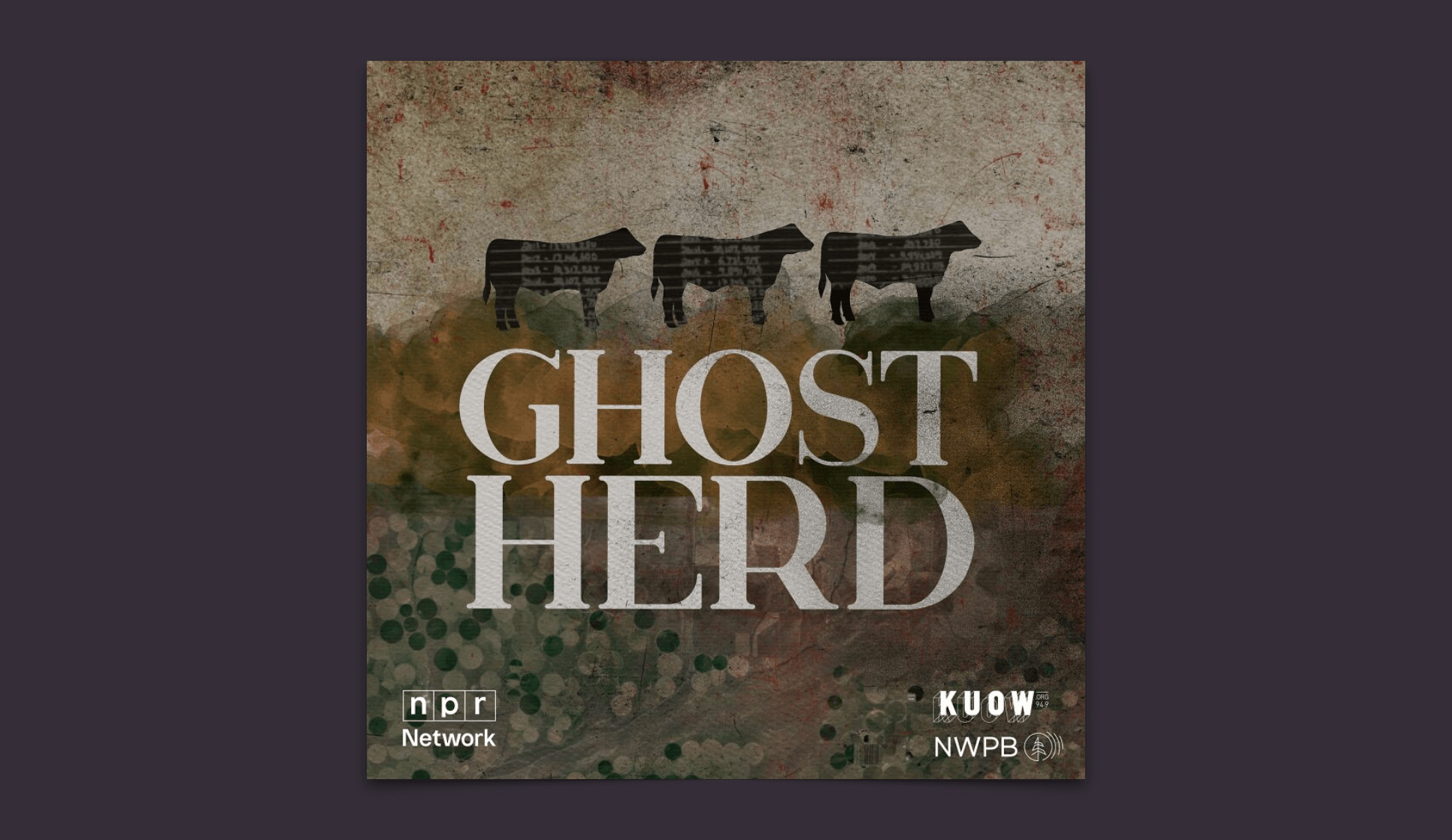Ghost Herd, a new podcast from KUOW Public Radio and Northwest Public Broadcasting, investigates the fraudulent actions of Easterday Farms, a well-known ranching enterprise in southeast Washington’s Columbia Basin. The series examines how the once-powerful Easterday family built its house of cards, and then collapsed it. Part architect of the empire, and also the one to bring it down, is Cody Easterday, the family’s youngest son. This January, he reported to federal prison to begin serving an 11-year sentence.
This is the debut podcast from longtime reporter Anna King, who got her start covering the agricultural and outdoors beat for a local paper in the region. Washington state is best known for Seattle’s gray skies and the northwest’s rocky beaches, but on the eastern side of the Cascades, there are swaths of fertile farmland and plentiful sunshine that produce a wide variety of agriculture. The Easterdays contributed to a significant portion of this region’s revenue, with a diversified business spanning corn, potato, and onion crops, as well as produce-processing facilities and restaurants.
But it’s mainly beef that concerned Cody Easterday. His eponymous “ghost herd” included 265,000 non-existent cattle that represented $244 million in fraudulent revenue. Even farmers who appear wealthy are often just one bad season away from financial ruin, and in 1989 — two years after Cody’s father, Gale, was forced to file bankruptcy — Cody dropped out of college to head back home and help rebuild the family farm.
Want to receive our latest podcast reviews and episode recommendations in your inbox? Sign up here for our weekly newsletter.
For many years, it seemed like Cody was doing right by the farm. The herds flourished; crop yields increased. Father and son worked alongside one another and were widely admired in a community where rodeo is a popular sport and weather is not small talk but instead critical information. By most accounts, Easterday employees felt heard and respected. Underpinning the farm’s growth was a major deal that Cody brokered with Tyson Fresh Meats, with the Easterdays supplying 2% of Tyson’s beef worldwide, a significant percentage for a single, family-run farm to contribute to a multi-billion-dollar, multi-national company.
But as the COVID-19 pandemic shut down meat-processing plants across the globe, firms such as Tyson began to take a closer look at their portfolios. And by the time Cody’s father died in a tragic car accident in December of 2020, Tyson’s investigation into Cody’s scheme was well underway. When a representative from Tyson visited the Easterday ranch, it was immediately clear that much of the beef herd Cody was being paid to raise didn’t exist — except for on the books. We learn that Cody was the architect of the swindle. In his interaction with the Tyson rep, some honesty kicks in, and Cody owns up to at least part of it.
Throughout Ghost Herd, King’s reporting delves into the nuances of contemporary agriculture, and she spends considerable time meeting with other family farmers of different sizes, most who know Cody personally, and none of whom would comment on record about his deceit. That’s the legacy of family standing in a close-knit community, even though Cody’s crimes have long since moved beyond “alleged.” King illuminates not only the Easterday scandal, but also southeast Washington state’s devotion to cultivating crops and raising meat for much of the nation.
There’s not much of a big reveal in Ghost Herd, unlike in some true-crime podcasts where the reporting leads to new investigations or even exoneration. Yet King succeeds in unwinding a complicated story of how reputations and hand-shake deals are a powerful force even in the modern agriculture industry. We already know who did it, but King lets us know how and why.
¤
Wendy J. Fox is the author of four books of fiction, including the novel If the Ice Had Held and the Colorado Book Award-winning What If We Were Somewhere Else. She has written for The Rumpus, Buzzfeed, Self, Business Insider, Electric Literature, and Ms. among other publications, and her work has appeared in many literary magazines.
